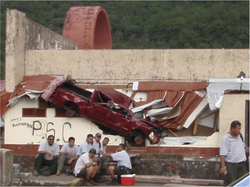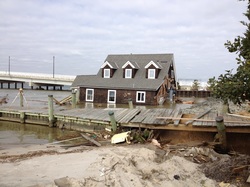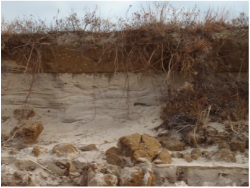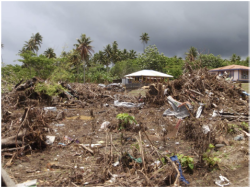Motivation and Research Themes
With half the world’s population living near the coast, inundation and erosion by coastal flooding (e.g., tropical cyclones, tsunamis) have had devastating impacts in coastal communities and to the coastal ecosystems upon which these communities often rely. Through cascading impacts, extreme coastal floods also have the potential to weaken national and global economy and security. In the US alone, half of weather-related, economic damage is due to hurricanes [1], mostly from coastal flooding, e.g., Hurricanes Sandy (in 2012; $67B, 159 deaths) and Katrina (in 2005; $151B, 1833 deaths). The Tōhoku tsunami (2011) and Typhoon Haiyan (2013) are reminders of the immense threat such hazards pose worldwide. By 2100, population is expected to grow by 50% [2] and mean sea level is expected to rise about one meter [3]—both increase the coastal disaster threat, with the former increasing lives and infrastructure in harm's way and the latter increasing the magnitude and spatial extent of the flood hazard. Coastal hazards research at Virginia Tech centers on four themes: Disaster Resilience, Hazard Assessment, Process Sedimentology, and Natural Infrastructure.
[1] Smith & Katz 2013 Nat Nazards | [2] United Nations 2013 report | [3] Stocker et al. 2013 Intergovernmental Panel on Climate Change report and references therein
Credits: Background photo courtesy of Sadatsugu Tomizawa (Creative Commons license CC BY-NC-ND 2.0). Field surveys shown above above supported by National Science Foundation & American Society of Civil Engineers.
© 2019 Jennifer L. Irish, Robert Weiss, and Tina Dura. All Rights Reserved.





